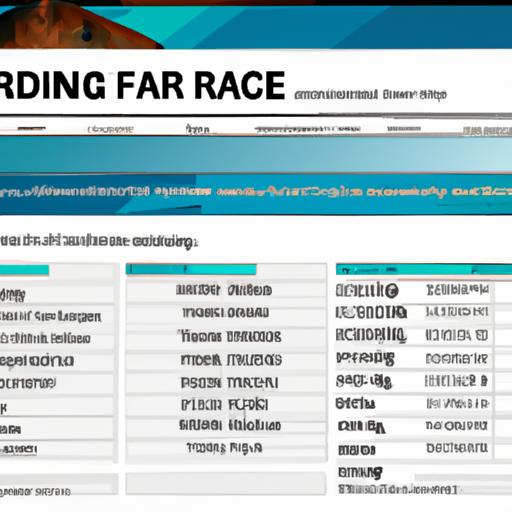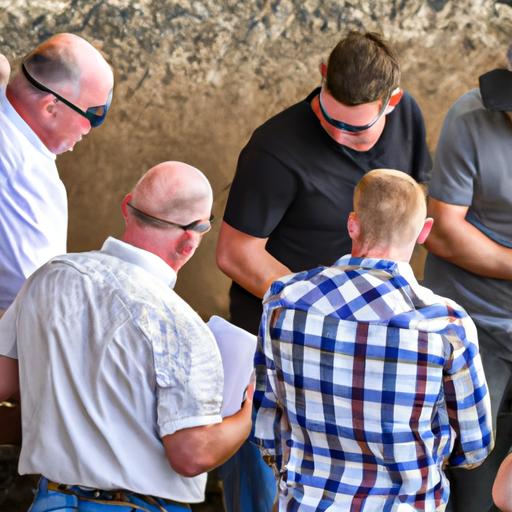Learn how to study horse form and unlock the secrets to successful betting. Spot patterns, analyze race conditions, and develop a systematic approach.
Introduction

In the thrilling world of horse racing, there’s an art to predicting the outcome of races. Seasoned bettors understand that studying horse form is the key to unlocking the secrets of successful betting. But why is studying horse form so important, and what are the benefits it offers to bettors like you and me?
Understanding horse form is crucial because it provides valuable insights into a horse’s past performances, trainer and jockey statistics, track conditions, and recent race results. By delving into these factors, we can make informed decisions and increase our chances of placing winning bets.
The Importance of Studying Horse Form

Imagine stepping into a racecourse without any knowledge of the competing horses. How would you confidently place your bets? Studying horse form allows us to assess the strengths and weaknesses of each runner, helping us make educated predictions. It’s like peering into a crystal ball that reveals a horse’s potential, enabling us to make strategic betting choices.
Benefits of Understanding Horse Form for Bettors
By mastering the art of studying horse form, you gain a competitive edge in horse racing betting. Here are a few key benefits that understanding horse form offers:
-
Improved Decision-Making: Through careful analysis of past performances, trainer and jockey statistics, and track conditions, you can make well-informed decisions that maximize your chances of success.
-
Increased Confidence: When you have a thorough understanding of a horse’s form, you can confidently assess its potential in upcoming races. This boosts your confidence as a bettor and enhances your overall enjoyment of the sport.
-
Higher Returns: By uncovering hidden gems and spotting undervalued horses, you can identify lucrative betting opportunities that yield higher returns on your wagers.
-
Enhanced Betting Strategies: Studying horse form enables you to develop effective betting strategies tailored to different race conditions. You can identify patterns, trends, and preferences that provide a solid foundation for your wagering approach.
Now that we understand the importance of studying horse form and the benefits it brings, let’s dive deeper into what horse form actually entails. In the next section, we’ll explore the different components that make up a horse’s form and how to gather this crucial information. Stay tuned to become a savvy horse racing bettor at Horsemasterypro.com!
What is Horse Form?
Definition of Horse Form
Before we dive into the components that make up horse form, let’s first establish what exactly horse form refers to. Horse form is a comprehensive record of a horse’s past performances, including details of its races, results, and various factors that contribute to its overall performance. It provides a snapshot of a horse’s capabilities, strengths, and weaknesses.
Components of Horse Form
To fully understand a horse’s potential in upcoming races, it’s essential to analyze the various components that comprise its form. These components include:
1. Past Performance Records
The most critical aspect of horse form is analyzing a horse’s past performance records. These records provide valuable insights into a horse’s racing history, including details such as finishing positions, times, and margins. By studying this data, we can identify horses that consistently perform well and those that may have experienced recent setbacks.
2. Trainer and Jockey Statistics
The expertise and skill of the trainer and jockey play a significant role in a horse’s performance. Examining trainer and jockey statistics, such as win percentages and records, allows us to gauge their proficiency. Additionally, analyzing specific trainer-jockey combinations can reveal successful partnerships that may enhance a horse’s chances of victory.
3. Track Conditions and Distance Preferences
Track conditions and distance preferences are crucial factors that impact a horse’s performance. Some horses thrive on certain track surfaces, while others may struggle on particular types. Additionally, horses have preferences for specific race distances, with some excelling in sprints and others in longer races. Understanding these preferences helps us assess a horse’s suitability for specific race conditions.
4. Recent Race Results
Recent race results offer valuable insights into a horse’s current form. By examining a horse’s performance in its most recent races, we can identify patterns of improvement or decline. This information allows us to gauge a horse’s fitness, readiness, and current level of competitiveness.
Now that we’ve explored the components of horse form, the next section will focus on how to gather this crucial information. Join us at Horsemasterypro.com to learn effective strategies for studying horse form and improving your betting prowess!
Gathering Horse Form Information
In order to study horse form effectively, you need to gather accurate and comprehensive information about the horses you’re interested in. There are two primary methods for collecting this vital data: utilizing online resources and attending live racing events.
Utilizing Online Resources
The internet has revolutionized the way we access information, and horse racing is no exception. Here are some online resources that can provide valuable insights into horse form:
-
Racing Websites and Databases: Websites dedicated to horse racing offer a wealth of information, including past performance records, trainer and jockey statistics, and race results. Popular platforms like Equibase, Racing Post, and Daily Racing Form are excellent starting points for accessing horse form data.
-
Form Guides and Racing Publications: Form guides are comprehensive publications that provide detailed analysis of past performances, expert tips, and other valuable information. These guides are widely available online and can give you a deeper understanding of a horse’s form.
-
Social Media Platforms for Insights: Social media has become a valuable source of real-time information in the horse racing community. Follow trainers, jockeys, and racing enthusiasts on platforms like Twitter and Facebook to stay updated on the latest news, insights, and insider tips.
Attending Live Racing Events
While online resources offer convenience, there’s nothing quite like the experience of attending live racing events. By immersing yourself in the atmosphere and observing the horses up close, you can gain unique insights into their form. Here’s what to focus on when attending live racing events:
-
Observing Horses Before the Race: Take the time to study the horses in the paddock before the race. Look for signs of alertness, fitness, and overall demeanor. Pay attention to their physical appearance, movement, and behavior, as these can indicate their level of readiness and form.
-
Assessing Pre-Race Warm-Up Routines: Watch how horses warm up on the track before the race. Are they moving fluidly and confidently? Do they demonstrate a burst of speed or struggle to keep up? These observations can provide valuable clues about a horse’s current form and potential performance.
By utilizing online resources and attending live racing events, you can gather a wealth of horse form information. Armed with this knowledge, we can now move on to the next step: analyzing horse form. Stay tuned to Horsemasterypro.com for the next section, where we explore effective strategies for evaluating horse form and making informed betting decisions!
Analyzing Horse Form
As a diligent bettor, analyzing horse form is a crucial step in your journey towards successful betting. By delving into the various components of a horse’s form, you can gain valuable insights that inform your betting decisions. Let’s explore the key aspects of analyzing horse form and how they contribute to your overall understanding.
Evaluating Past Performances
One of the foundations of analyzing horse form is evaluating past performances. This involves examining the horse’s history in races, considering factors such as race classes, finishing positions, margins, and speed figures.
Understanding Race Classes and Levels
Race classes and levels indicate the caliber and competitiveness of a race. By understanding these classifications, you can assess how a horse has performed against similar competition. A horse that consistently performs well in higher classes demonstrates its ability to contend with stronger opponents.
Analyzing Finishing Positions and Margins
Examining a horse’s finishing positions and margins provides valuable insights into its consistency and competitiveness. Consistently finishing in the top positions indicates a strong contender, while large margins of victory or defeat can highlight a horse’s dominance or struggles in certain conditions.
Examining Speed Figures and Ratings
Speed figures and ratings quantify a horse’s performance, giving you an objective measure to compare against other contenders. These figures consider factors such as distance, track conditions, and competition, allowing you to identify horses with consistent speed and potential for success.
Assessing Trainer and Jockey Statistics
Another vital aspect of analyzing horse form is assessing the statistics of the trainer and jockey associated with the horse. Their expertise and track record play a significant role in a horse’s performance.
Win Percentages and Records
Evaluating the win percentages and records of trainers and jockeys provides insights into their effectiveness. High win percentages indicate a successful track record, highlighting their ability to prepare and guide horses to victory.
Trainer-Jockey Combinations
Analyzing the compatibility and synergy between trainers and jockeys is crucial. Certain trainer-jockey combinations work exceptionally well together, creating a winning formula that can give a horse a competitive edge in races.
Considering Track Conditions and Distance Preferences
Track conditions and distance preferences significantly impact a horse’s performance. Understanding these factors helps you assess a horse’s suitability for specific conditions and distances.
Impact of Track Surfaces on Performance
Different track surfaces, such as dirt, turf, or synthetic, can affect how a horse performs. Some horses excel on certain surfaces, while others struggle. By considering a horse’s past performances on specific track surfaces, you can gauge its adaptability to different conditions.
Identifying Horses’ Preferred Distances
Not all horses are created equal when it comes to distance preferences. Some horses thrive in sprint races, while others have the stamina for longer distances. By identifying a horse’s preferred distance range, you can better anticipate its performance in races of similar lengths.
By thoroughly analyzing these components of horse form, you’ll gain a comprehensive understanding of a horse’s potential and increase your chances of making informed betting decisions. In the next section, we’ll explore how to interpret horse form to develop effective betting strategies. Stay tuned at Horsemasterypro.com for more expert insights!
Conclusion
In the exhilarating world of horse racing, studying horse form is the key to unlocking the secrets of successful betting. By delving into a horse’s past performances, trainer and jockey statistics, track conditions, and recent race results, you gain valuable insights that can greatly enhance your betting strategies. At Horsemasterypro.com, we understand the importance of studying horse form and its impact on your betting success.
By studying horse form, you not only improve your decision-making abilities but also increase your confidence as a bettor. Armed with a deep understanding of a horse’s potential, you can confidently assess its performance in upcoming races, making informed choices that maximize your chances of winning. Moreover, understanding horse form allows you to identify undervalued horses and lucrative betting opportunities, resulting in higher returns on your wagers.
To effectively interpret horse form for betting strategies, it’s essential to spot patterns and trends. Identifying consistent performers and recognizing improvements or declines in form can provide valuable insights into a horse’s capabilities. Additionally, considering the race conditions, such as evaluating competition and field size or factoring in weights and handicap ratings, helps you make well-informed decisions tailored to specific race scenarios.
To further enhance your betting approach, it’s crucial to develop a systematic approach. Creating a rating system that evaluates various factors, such as past performances, trainer and jockey statistics, and track conditions, can help you make objective assessments. Additionally, utilizing form analysis tools can provide valuable data and insights to strengthen your betting strategies.
In conclusion, studying horse form is a fundamental aspect of successful horse racing betting. By understanding the intricacies of a horse’s past performances and utilizing this information to develop informed strategies, you can greatly increase your chances of success. So, whether you’re a seasoned bettor or just starting your journey, embrace the art of studying horse form to elevate your betting game. Join us at Horsemasterypro.com and unlock the secrets to becoming a savvy horse racing bettor.


